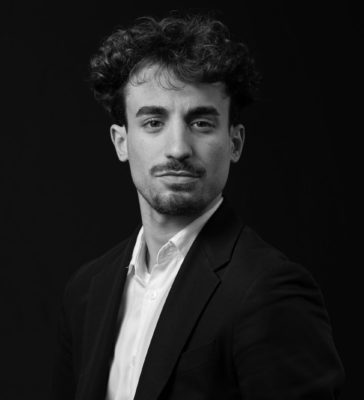
James Smyth
Current Employer/Organisation Name
M&G plc
What have you been doing since leaving Exeter, and what are you doing now?
I currently work as an ESG Analyst at M&G plc. ESG stands for environmental, social and governance issues and I work for a savings and investment firm covering these issues. My role involves speaking to fund managers across the business, advising them on ESG risks and opportunities in their portfolios, as well as providing them with useful ESG data for their funds e.g. carbon footprint figures, MSCI ESG scores, changes in ESG ratings, board gender splits etc. Before my role at M&G, I worked as a Junior Analyst at CDP, a climate NGO. CDP (formerly the Carbon Disclosure Project) acts like a climate database, sending out questionnaires to companies, cities, states and regions across the world for them to respond with their climate-related info. I worked in the Investor Research team there where we would use the data to produce reports for our investor signatories, assessing which companies in high-emitting sectors were best and worst prepared for a low carbon transition.
Why did you choose this career? And what do you enjoy most about your work?
I most enjoy having the ability to make a positive difference. When you raise ESG issues with a fund manager and they subsequently engage with companies on these issues and work with the company to make positive ESG changes (e.g. greater proportion of capital expenditure on low carbon R&D), you do feel like you’re making a positive contribution and that for me is key. I choose this career of ESG or green finance as it dawned upon in my second year that the finance sector held the keys in ensuring the success of the low carbon transition. The science is very clear about what we have to do to transition to a lower carbon society but it was in my second year at Exeter that I really realised that the finance sector was the main player in funding this transition. As such, I have pivoted my career around focusing on highlighting the financial benefits of both managing climate-related risks and capitalising on climate-related opportunities to the money managers.
Please tell us if you were a member of any societies, groups or sports clubs?
I played for the football team as part of EUAFC and did so over my three years at Exeter, working my way up from the 7th/8ths in my first year to the 5ths and then spent my second and third year in the 4ths. I also undertook a project within the Students Green Unit (SGU) to reduce paper wastage on campus. We got all university printers to print double-sided as the default option, effectively reducing paper wastage by 50%.
What did you enjoy most about your programme and what was the biggest highlight?
There were some fascinating lecturers who gave great insight to their ideas on the climate issues we faced and how the issue played out at both a global level but also at a very local level. That allowed us to go on numerous field trips which were always very helpful in understanding real-world issues, as well as being a lot of fun! There were also a lot of team-related assessments which I think prepares you really well for your career. That also allowed you to meet a lot of different people across your course and hear very different perspectives which I found very helpful.
What did you enjoy most about studying here?
Content of the lectures was always fascinating as there was such a diverse, intelligent group of lecturers and I never took that for granted. I think, as such, it is the people that made is so enjoyable. Both the lecturers and the fellow students, of whom I could not say a bad word about of anyone.
Why did you choose to study at Exeter?
Many reasons but the quality of the education provided, the campus and how green it was, the city itself, the prowess at sport and hearsay of how much fun everyone said it was!
What skills and experiences have been most useful for your career?
Team assessments definitely comes to mind as that is something that I tend to have to do all the time and my time at university prepared me really well for that. You learn how to appreciate everyone’s perspectives, take the lead when you wish, take a back seat if you feel you need to, and bring it all together. I feel that I also have to say transferable skills in general, as that was something the Geography careers mentor always stressed and they were very right! Summarising information pops into mind as that is something I have to do a lot, and it was something that we practiced a lot in Geography, and my skills at that are now much better as a result. I think also meeting so many different people with different perspectives has allowed me to always look at things more holistically and that is testament to the great people I met at Exeter.
What advice would you give to a current student who wishes to pursue your career?
Drop me a line! Aside from that, the main thing to focus on would be demonstrating how you have taken your interest in that area into something more e.g. volunteering, awards, etc. A lot of people will say they are interested in ESG but if you are really passionate about ESG the question is how can you demonstrate that? Was it your focus area for your dissertation? Have you undertaken volunteering related to ESG issues? Have you setup a project under the SGU? Don’t just talk about how you are interested in ESG issues, show you are!
What are your plans for the future?
A great question! I am currently happy in my role and learning new things all the time so see myself in the current role for a bit longer yet! That said, I have always wanted to challenge myself and live abroad at some point so that is definitely on the cards. However, this is tough to answer as I envisioned living abroad and then COVID hit and changed everything! Come back to me on this!

